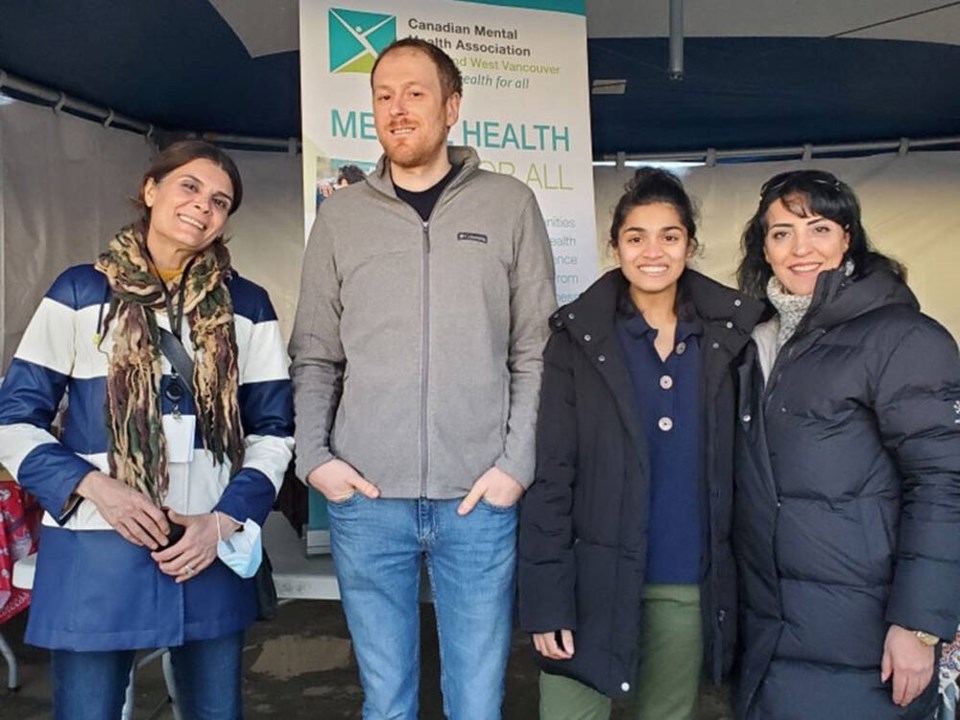If you’re feeling a bit stressed, depressed or overwhelmed around the holidays, you most certainly are not alone. And there is help available.
The Canadian Mental Health Association’s North Shore branch’s Peer Assisted Care Team, a first-of-its-kind civilian response group for people experiencing mental distress, is bracing for a busy few weeks.
Whether its suicidal thoughts, despair, substance use or family strife, PACT provides over-the-phone or in-person help with a trained mental health professional and a peer worker. They can be reached, from Thursday to Sunday between 6 p.m. and midnight, by calling 1-888-261-7228 or texting 778-839-1831, or they can be found online at northshorepact.com.
The team launched as a pilot project in 2021. The intent was to provide people in need of some mental health support with an option that didn’t involve 911 or police. The team responded to almost 700 contacts from within the North Shore in their first year.
“It showed our communities that a community-led service can meet people’s mental healthcare needs,” said PACT manager Tejal Barde.
When people are experiencing a crisis, it often means a call to emergency services, a trip to the ER or expensive therapy, which “are not always what people need, and usually not what people want.” A common thread among those calling for assistance is a simple desire to be listened to, Barde said.
“There is appreciation for being there in the moment. Clients can reach us when they are experiencing a crisis or increased distress. We have received positive feedback of how our team does not rush clients. We take the time to listen and build relationships,” she said, adding that clients tend to be grateful when they’ve been connected with the appropriate services. “We walk with them as they navigate next steps, and we usually check in on them after a couple of weeks to see how they are doing.”
One of the biggest challenges has been finding people who are in need of help but are mistrustful of the system. And, Barde said, their staff also sees the gaps in the system when it comes to Black, Indigenous or other persons of colour.
Having the program run and staffed by civilians has been a key factor in its success, Barde said.
“We have had many people and families thanking PACT for preventing a call or visit from the police. People have appreciated that our service is discreet and confidential. Neighbours are not aware they are in distress,” she said.
In the coming year, PACT will be expanding the number of days team members are available.
A testament to the strategy’s success: similar services will start popping up in other cities in the province in next year, Barde said.
“We are seeing our program replicated in communities across the province, starting with Victoria and New West in early January 2023. Premier Eby has announced a future expansion of PACT teams across B.C. He will be adding nine additional teams by 2024,” she said.
When it comes to dealing with stress, CMHA North and West Vancouver recommends sticking to the basics: good sleep, fresh air, diet and exercise, and spending time in nature.
“We also advise taking time to acknowledge your emotions and be flexible and creative with how you pass the time and reach out to others. If you want to try something new, we encourage activities such as journaling, puzzling, and craft projects,” Barde said. “Be kind to yourself. Try not to romanticize your typical holiday plans or feel pressure to participate in typical holiday customs that aren’t for you.”



